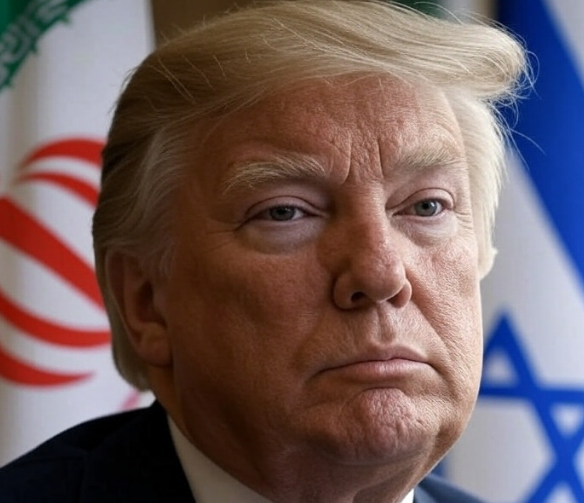Possible U.S. Involvement in Israel-Iran Conflict:In a major geopolitical revelation, U.S. President Donald Trump has stated that the United States could potentially get involved in the ongoing Iran-Israel conflict. Trump also revealed that Russian President Vladimir Putin has shown readiness to mediate, highlighting the deepening complexity of the escalating crisis in the Middle East.
President Trump Hints at Possible U.S. Involvement in Israel-Iran Conflict
In an exclusive interview with ABC, U.S. President Donald Trump has opened the door to the possibility of American involvement in the escalating Israel-Iran conflict. While asserting that the United States is not currently engaged in any military operation in the region, Trump made it clear that future involvement cannot be ruled out.
He stated, “It remains possible the US will become involved in the Iran-Israel conflict.” This admission marks a significant shift in Washington’s public stance and comes amid increasing global concern about the rapid intensification of hostilities.
Adding an unexpected diplomatic twist, Trump revealed that Russian President Vladimir Putin has expressed interest in mediating the conflict. According to Trump, “Putin is ready. He called me about it. We had a long talk about it.” This statement signals a potential triangular diplomatic effort involving Washington, Moscow, and the warring Middle Eastern states.
Yesterday, President Trump said:
President Putin called this morning to very nicely wish me a Happy Birthday, but to more importantly, talk about Iran, a country he knows very well. We talked at length. Much less time was spent talking about Russia/Ukraine, but that will be for next week. He is doing the planned prisoner swaps – large numbers of prisoners are being exchanged, immediately, from both sides. The call lasted approximately 1 hour. He feels, as do I, this war in Israel-Iran should end, to which I explained, his war should also end.
While Trump’s comments suggest a degree of openness to diplomatic channels, his acknowledgment of possible U.S. military involvement comes in direct contradiction to claims made by Iran. Tehran alleges that Israel has been conducting airstrikes based on U.S. intelligence and support, an assertion Washington has not officially confirmed.
The current statement also contrasts with the United States’ earlier efforts to maintain a distance from direct military action in the region. However, with mounting international pressure and ongoing missile exchanges between Israel and Iran, the situation remains extremely volatile.
Trump’s openness to Putin playing the role of mediator could signal a new phase in international diplomacy, but it also raises questions about how the U.S. and Russia, often adversaries on global issues, might coordinate or clash in navigating the Iran-Israel crisis.
With tensions already at a boiling point, Trump’s remarks are likely to attract significant global attention and may influence the next steps taken by all major powers involved. The eyes of the world now turn to Washington and Moscow, waiting to see whether war drums will beat louder—or if a path to diplomacy will be paved.
Disclaimer:
The information presented in this article is based on evolving news reports, official statements, and media interviews. Geopolitical conflicts, such as the ongoing Iran-Israel escalation, are highly volatile and subject to rapid change. The views expressed by political leaders, including U.S. President Donald Trump and Russian President Vladimir Putin, reflect positions at a specific point in time and may shift based on new developments, intelligence assessments, or diplomatic negotiations.
This content is intended solely for informational and journalistic purposes. It does not constitute official government policy, military strategy, or verified intelligence. Readers are strongly advised to consult multiple credible news sources and official government communications for the latest, most accurate, and up-to-date information.
Furthermore, any references to possible military involvement or diplomatic mediation efforts should not be interpreted as confirmed actions unless formally announced by the respective governments. The inclusion of statements from world leaders does not imply endorsement or validation of their claims. The situation in the Middle East is complex, and narratives may differ significantly based on regional perspectives, national interests, and media coverage.

